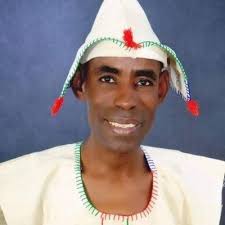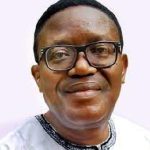“As the 2027 elections approach, President Tinubu faces a defining test. His conduct and choices will either affirm Nigeria’s descent into entrenched autocracy or herald the commencement of a democratic renewal. The Nigerian populace is observing—and they are no longer passive”.
BY BELLO GWARZO ABDULLAHI
The thought-provoking essay by Dr. Emman Shehu, titled “The Peril of Sycophancy: Nigeria’s Democracy Teeters on the Edge,” necessitates a rejoinder in support—particularly in the light of Nigeria’s alarming drift toward autocracy, as underscored by the actions of the All Progressives Congress (APC)-led administration and its operatives.
We find ourselves ensnared in a predicament aptly encapsulated in Hausa as “A doke ka a hana ka kuka”—to be beaten and simultaneously forbidden from voicing one’s grievances.
Nigeria has reached a pivotal inflection point, where institutions constitutionally mandated to uphold democracy are being systematically co-opted and coerced into executing the will of a political elite. The ramifications are dire—not only for democratic governance but also for the nation’s moral and institutional integrity.
In his timely intervention, Dr. Shehu elucidated several profoundly troubling developments:
- The INEC Controversy and the Cult of Loyalty
Dumebi Kachikwu’s allegations against the Chairman of INEC exposed a toxic milieu where loyalty to the president has supplanted fidelity to the nation and its laws. The sycophantic culture being cultivated under President Tinubu’s aegis is progressively eroding the autonomy of vital institutions such as INEC.
- Patronage Over Principles
The president’s patronage-driven political architecture has engendered a coterie of loyalists who prioritize personal allegiance over public accountability. This trend is manifest in premature endorsements ahead of the 2027 elections and the symbolic nomenclature of public institutions after the president—gestures that reinforce a disconcerting culture of hero-worship within his administration.
- Policy by Praise, Not Principle
The perils of sycophancy are not merely symbolic—they profoundly influence policy and decision-making. A presidency insulated from honest critique is destined to falter, as evidenced by recent economic missteps and tone-deaf pronouncements. When loyalty supersedes competence, the outcome is a governance vacuum filled with groupthink and miscalculation.
- Institutional Capture
Under President Tinubu’s stewardship, we are witnessing the deliberate erosion of institutional independence. Efforts to manipulate judicial appointments and regulatory bodies reflect a growing inclination to prioritize political control over democratic accountability. This centralization of power poses a clear and present danger to the democratic experiment.
- Choking Dissent, Undermining Democracy
The suppression of dissent and independent thought has far-reaching implications. Public trust in institutions—especially INEC—continues to deteriorate amid unresolved allegations of electoral malpractice. This engenders apathy, fuels disillusionment, and ultimately undermines the legitimacy of the democratic process.
- Continental Reverberations
Nigeria’s democratic backsliding is not an isolated concern. As Africa’s most populous nation and a regional bellwether, Nigeria’s trajectory conveys powerful signals across the continent. A weakened Nigerian democracy emboldens autocrats elsewhere. Conversely, a revitalized commitment to democratic norms can inspire a continental resurgence.
The Path Forward: Rejecting Sycophancy, Reclaiming Democracy
Nigeria stands at a crossroads. The choice confronting President Tinubu—and indeed all stakeholders—is stark: perpetuate a system that rewards blind loyalty or embrace a leadership model anchored in democratic principles, institutional integrity, and public accountability.
To preserve and rejuvenate our democracy, a collective repudiation of sycophancy is imperative. Political actors, civil society, and citizens alike must rise in defense of democratic ideals. Silence, at this juncture, is complicity.
As the 2027 elections approach, President Tinubu faces a defining test. His conduct and choices will either affirm Nigeria’s descent into entrenched autocracy or herald the commencement of a democratic renewal. The Nigerian populace is observing—and they are no longer passive. They are informed, resolute, and prepared to safeguard their hard-won democratic rights.
Let the message resonate clearly: Nigerians are weary of incompetence, cronyism, and authoritarian drift. The time to alter course is now—before the precipice becomes the abyss.
…Bello Gwarzo Abdullahi, an engineer based in Gombe can be reached via bgabdullahi@gmail.com










